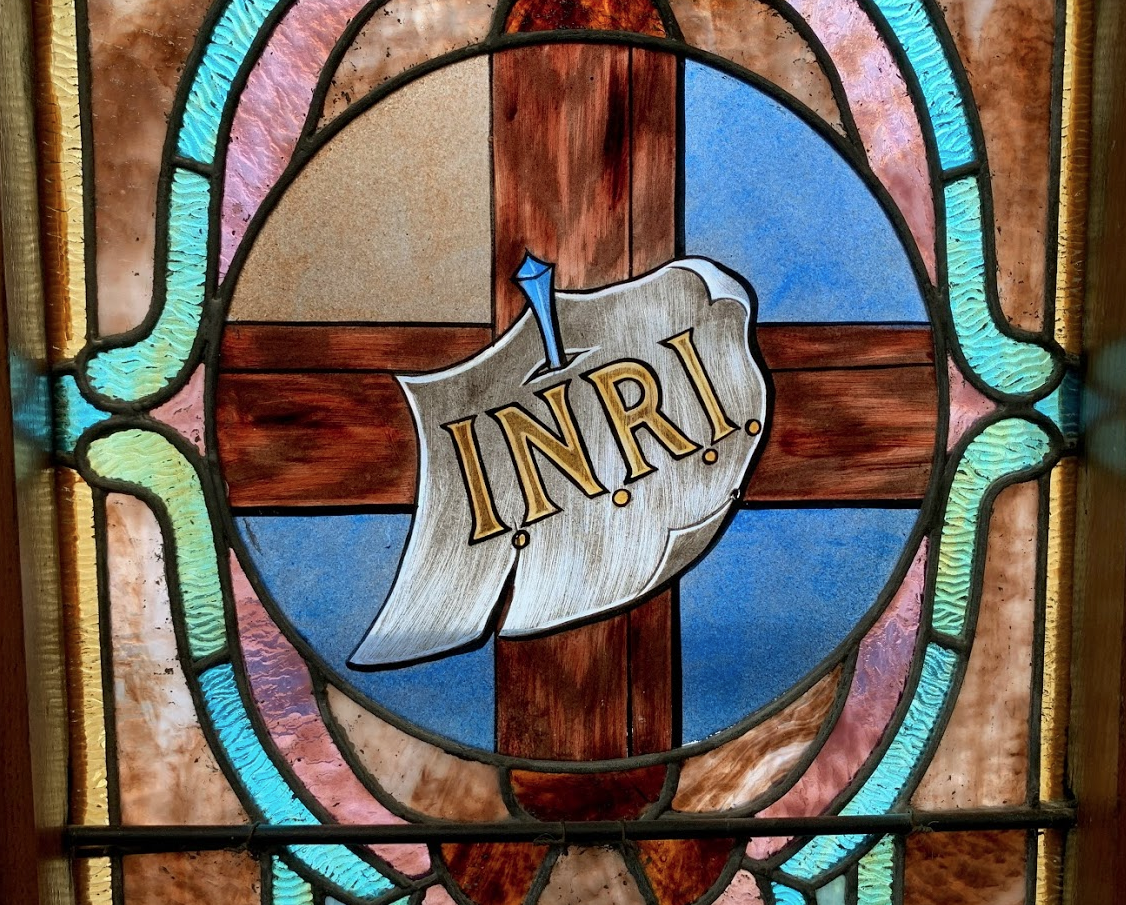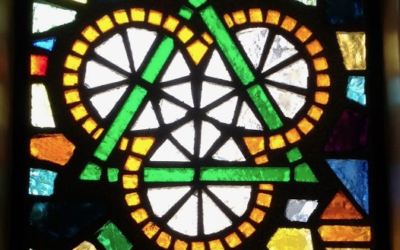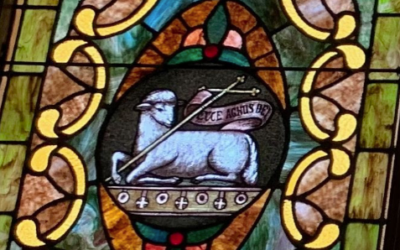A Matter of the Heart
Sunday, August 29, 2021
Watch the service

Keep The Word
We know that you have options. Years ago I started flying on jets. And the first time you hear the speech about seatbelts being fastened and “in the event of a water landing” you pay attention. But then you get used to it, and you don’t listen as much. But some years ago, they added extra words. In addition to the safety speech, they add the words, “we know that you have options.” It’s their way of saying that you should fly on their airline. But the addition of the words speaks to what our life and our society is like. If you tell someone that they have no options that can come across as mean and uncaring. Who of us would keep going to a restaurant for lunch where you showed up and there was no menu because there was only one option. This morning we learn h0w to treat and keep God’s word. This morning we learn that God’s word is different and special than some of the other gifts we have in this life. And as a result, we treat it differently. And first of all, we see that we keep the word wholly. In Deuteronomy 4, we read: “1 “Now, Israel, listen to the statutes and ordinances I am teaching you to follow, so that you may live, enter, and take possession of the land the Lord, the God of your ancestors, is giving you. 2 You must not add anything to what I command you or take anything away from it, so that you may keep the commands of the Lord your God I am giving you.” (Deut. 4:1–2 CSB17)
Notice how Moses speaks about God’s word. We keep it wholly. We don’t add to it. We do not subtract from it. For if we do we will be adding something corrupting to it and subtracting something good from it. God’s word is not an airline or a lunch menu. We either embrace all of what it teaches to us or we will be changing it in a bad way. The world around us hates to hear this. They like the Jesus who speaks about peace and love, but hate the Jesus who speaks about accountability. They like the Jesus who speaks about forgiveness, until it is someone they would have to forgive. They like a message from God as long as they reserve the right to change it instead of having that word change them.
But my friends in Christ, are we any different? In the next chapter, in chapter six we hear the 10 commandments. And we need to hear them continually. For in us there is a sinful nature that does not want to be corrected. We want to add amendments and riders. We want to edit and emend out what we do not like.
But as Christians, God asks us to keep it wholly. And what a great gift that is. For, as we keep it wholly and entirely, we can trust the corrections God gives us through it. We may not be able to trust the laws and corrections the world around us gives. But we can trust these words. And, on the other hand, we might not be able to trust the world around us or the thoughts and emotions in us when it comes to forgiveness. But we can trust this book. We can trust that when Jesus says that our sins are forgiven, he means it. So, we keep God’s word wholly. But there’s more: “5 Look, I have taught you statutes and ordinances as the Lord my God has commanded me, so that you may follow them in the land you are entering to possess. 6 Carefully follow them, for this will show your wisdom and understanding in the eyes of the peoples. When they hear about all these statutes, they will say, ‘This great nation is indeed a wise and understanding people.’ 7 For what great nation is there that has a god near to it as the Lord our God is to us whenever we call to him? 8 And what great nation has righteous statutes and ordinances like this entire law I set before you today?” (Deut. 4:5–8 CSB17)
We keep God’s word wholly. But here we keep God’s word holy (with an “h”). Notice how Moses speaks here. He let’s them know that as they strive and struggle to read God’s word and actually keep it, it will show. Others, there on the outside, will see it. They will see how wise, noble, and holy God’s word is. There’s nothing like it. And there never will be. I remember years ago, when I was at the Seminary, when we were walking through this part of the bible, the professor had us look at the code of Hammurabi one day. The law code of Hammurabi is an important document from the Babylonians. It shows us h0w they viewed justice and tried to carry it out. If you look at it in a shallow way, it would seem as if all religions are the same. All religions and law codes say, “Do not murder.” Both the commandments here in the bible and the code of Hammurabi have this commandment. What’s the difference? If you read in the code of Hammurabi, though, there are extra words. And to summarize, it looks like this: If you’re rich you get to hurt, harm, and even murder people and get away with it. You cannot kill other rich people. But you can harm middle-class people as long as you pay a fine. And you can kill slaves and other unprotected people without any consequence. That’s how the code of Hammurabi speaks. And that was the best of the law-codes that existed back in the day. Can you begin to see why not just the Hebrews, but also the surrounding non-Jewish people held God’s word in awe?
But my friends in Christ, the same is true today. Years ago I heard a man who was in the healthcare field. He spoke about how he used to not be a Christian. And what brought him over was how some people would treat elderly people with honor and dignity, and others would not. And, for a time he couldn’t figure it out. Then he began to see a pattern. Those who went to church came and visited mom and dad, grandma and grandpa. They cared for them. Not all of them, but the majority of them did. And it changed him. He realized that if you believe that people are no more than highly evolved and complex animals, then there’s no reason to really care for them when they are old. In fact, society might be better off they were disposed of because they were drains on society. And when he asked himself the question, “why do these Christians care about the elderly,” the answer he finally arrived at was that their law tells them to. Even today people see God’s word as holy. They see it as wise and wonderful. They might not even believe it. But they see that it’s different from afar. How much more so then does that lead us to hear it and cling to it, then as Christians who believe what it says and cherish it? And that leads us to our last topic: ““Only be on your guard and diligently watch yourselves, so that you don’t forget the things your eyes have seen and so that they don’t slip from your mind as long as you live. Teach them to your children and your grandchildren.” (Deut. 4:9 CSB17)
As Christians we keep the word wholly and holy. But, finally, we keep it humbly. As Christians we have the temptation to pride. Moses knows his people. The first temptation they are going to have is to not hear and not struggle to keep God’s word. But later on, there will be a new and different temptation. The temptation will be to stop learning, talking about, and hearing God’s word. And when that happens they would forget. They would forget what God’s word said. They would forget why God’s word was so wondrous.
So too, today, we have the same temptation. There is this real temptation to conclude that, since we worked hard, 10 or 100 years ago to learn God’s word when we were in Sunday School or in catechism class, that then gives us the right to forget—to forget what God’s word says and why it is so wondrous.
When that happens the best gift God gives to us is to speak to someone who is on the outside looking in. They speak an idea or commit an action that is against these holy words handed down to us. And we correct them. And in response, they say, “where in the bible does it say that?” And with such shame and sadness, we have to admit that we have forgotten where in the bible it says that. How much more is this true when it comes to forgiveness. There will be those times when people on the outside will need to hear that they are forgiven—that Jesus died for that sin too. Outsiers will ask us, “where in the bible does it say that?” How sad that we cannot remember.
We keep God’s word humbly. We confess our dangerous pride at being a Lutheran and a Christian but yet forgetting the what and why of the word. How truly wonderful it is to go back to this part of God’s word and remember that we keep God’s word wholly. And since we keep it as one, perfect, unbroken whole, then all of it is true and what is says we can trust about our forgiveness. Since all of it is true, then when Jesus says that my sin of pride is forgiven, I can trust it. And it is not just whole. It is also holy. It is different than any law of any nation or religion. And just as non-Christians see this we too will see this again too. It is this holiness in his word that pays for our sins. So my dear friends in Christ, keep the word: Wholly, Holy, and Humbly.



